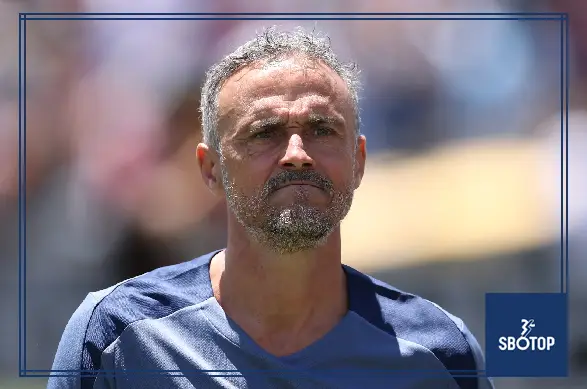The Club World Cup is a stage where the world’s finest football teams converge to showcase their talent, tactics, and tenacity. However, the 2025 edition has sparked heated debates—both figuratively and literally—over its kick-off times. As players battle for glory, they also contend with an oppressive adversary: intense heat.
Amidst Atletico Madrid’s commanding victory in their opening match, head coach Luis Enrique and standout player Vitinha voiced concerns about the extreme playing conditions. Their remarks have ignited conversations about player welfare, tournament logistics, and the broader implications for the future of football.
Atletico Madrid’s Dominant Performance
Atletico Madrid opened their Club World Cup campaign in emphatic fashion, dismantling their opponents with a 4-0 victory. The team’s relentless press, tactical brilliance, and clinical finishing were on full display, reaffirming their status as contenders for the prestigious title.
- Goals Galore
Led by captain Antoine Griezmann, Atletico executed a near-perfect game plan. Early goals set the tone, with Griezmann himself finding the net in the 12th minute. Midfield dynamo Vitinha added a spectacular brace, showcasing his versatility and composure under pressure. The final goal, a stunning long-range effort by Yannick Carrasco, sealed the rout.
- Luis Enrique’s Tactical Mastery
Luis Enrique’s fingerprints were evident throughout the match. His ability to adapt to the opposition and instill a winning mentality in his squad has been instrumental in Atletico’s resurgence. The victory reinforced his reputation as one of football’s most innovative minds.
The Elephant in the Room Extreme Heat
Despite the euphoria of victory, post-match discussions were dominated by criticism of the scheduling. With temperatures soaring above 35°C (95°F) at kick-off, both players and coaching staff expressed frustration over the challenges posed by the intense heat.
- Luis Enrique’s Critique
In his post-match press conference, Luis Enrique didn’t hold back.
“The teams are suffering. It’s not just about the football—we’re talking about health and safety here. Players are professionals, but they’re not invincible. These conditions make it extremely hard to perform at the level this tournament demands.”
Enrique emphasized the importance of player welfare, suggesting that alternative scheduling, such as evening games, could mitigate the issue.
- Vitinha’s Perspective
Vitinha, who was instrumental in the victory, echoed his coach’s sentiments.
“You can feel the heat sap your energy with every passing minute. It’s not just about hydration—it’s about the physical toll. We train hard to compete, but these conditions push us to the brink.”
The Portuguese midfielder highlighted the need for football governing bodies to prioritize player health over commercial interests, a sentiment that resonated widely among fans and pundits.
Impact of Extreme Conditions on the Game
The debate over kick-off times isn’t new, but the Club World Cup has brought the issue into sharp focus. Here’s how the heat affects players, tactics, and the overall spectacle:
- Physical Toll
High temperatures accelerate dehydration, impair cognitive function, and increase the risk of heat-related illnesses. Players are forced to conserve energy, leading to slower gameplay and more frequent stoppages.
- Tactical Adjustments
Coaches are compelled to alter their strategies. High-pressing systems and fast-paced attacks become untenable, as conserving energy takes precedence. This shift can diminish the entertainment value of the matches.
- Spectator Experience
Fans, especially those attending games in person, also endure the harsh conditions. Empty stands or subdued atmospheres can detract from the event’s appeal.
Broader Implications for Football
The controversy surrounding the Club World Cup kick-off times is part of a larger conversation about the intersection of sports and climate change. As global temperatures rise, heatwaves are becoming more frequent and severe, posing challenges for outdoor sports.
- Adapting to a Changing Climate
Football governing bodies, including FIFA, must adapt to these realities. Strategies could include:
- Rescheduling Matches: Prioritizing evening or night-time fixtures to avoid peak heat.
- Enhanced Cooling Measures: Providing more hydration breaks, installing cooling systems in stadiums, and ensuring adequate medical support.
- Flexible Tournament Calendars: Scheduling tournaments in cooler months or regions with milder climates.
- Balancing Commercial and Ethical Considerations
Major tournaments often prioritize lucrative broadcast slots, which may conflict with optimal playing conditions. Striking a balance between revenue generation and ethical responsibility is crucial.
Player and Fan Reactions
The reactions from players and fans have been overwhelmingly supportive of Luis Enrique and Vitinha’s statements. Social media platforms were flooded with messages of solidarity, with hashtags like #PlayerSafety and #ChangeTheTime trending worldwide.
- Player Unions Speak Out
Organizations like FIFPRO, which represent professional footballers, have reiterated calls for better scheduling practices.
“Football is for the fans, but it starts with the players. Ensuring their safety is non-negotiable,” FIFPRO stated in a recent press release.
- Fan Perspectives
Fans have also voiced their concerns. Many noted that watching matches in extreme heat diminishes the viewing experience, both at the stadium and on television.
FIFA’s Response
In response to the growing backlash, FIFA released a statement acknowledging the concerns and promising to review future scheduling practices.
“Player safety is our top priority. We are committed to working with stakeholders to ensure optimal conditions for players and fans alike.”
While the statement was a step in the right direction, critics argue that more concrete actions are needed to prevent similar issues in future tournaments.
As the Club World Cup progresses, the focus will remain on the pitch, but the scheduling controversy has cast a shadow over the tournament. For Atletico Madrid, the journey continues with high expectations, but their success will depend not only on tactical brilliance but also on their ability to adapt to challenging conditions.
- A Call for Change
The voices of Luis Enrique, Vitinha, and countless others have amplified the call for change. Whether it’s adjusting kick-off times or rethinking tournament structures, the football community must come together to address these pressing issues.
- The Legacy of This Club World Cup
This edition of the Club World Cup may ultimately be remembered not just for the football, but for the conversations it sparked. As the beautiful game navigates an era of unprecedented challenges, its resilience and adaptability will be put to the test.
Also Read:
- SBOTOP: Joan Garcia’s Transfer Saga Ends as Barcelona Prepares Announcement Amid Ter Stegen’s Galatasaray Negotiations
- SBOTOP: Brazil’s Igor Jesus Seals Victory for Botafogo with Decisive Header Against Seattle Sounders in Club World Cup Opener
- SBOTOP Diego Luna Shines Malik Tillman Impresses: Key Takeaways from USMNT’s Gold Cup Opener










